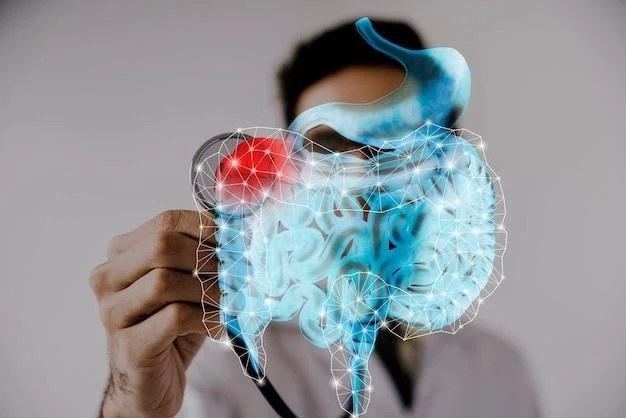Salivary gland disorders encompass various inflammatory, bacterial, viral, and neoplastic issues.
Introduction
Salivary gland disorders encompass various inflammatory, bacterial, viral, and neoplastic issues. Conditions such as cancerous tumors, Sjögrens syndrome, infections, and stones that form in the glands can lead to significant challenges in salivary gland health.
Overview of Salivary Gland Disorders
Salivary gland disorders encompass various inflammatory, bacterial, viral, and neoplastic issues.
Cancerous Tumors
Salivary gland disorders can include cancerous tumors that may develop in the glands, posing serious health risks.
Sjögrens Syndrome
Sjögrens syndrome is a chronic autoimmune disease characterized by the immune system attacking moisture-producing glands such as the salivary glands, leading to significant health implications.
Infections affecting the salivary glands are a significant concern, leading to various symptoms and complications that can impact overall health.
Salivary stones, also known as sialolithiasis, are common benign conditions affecting the salivary glands, often causing obstruction and subsequent discomfort.
Symptoms of Salivary Gland Disorders
Common symptoms of salivary gland disorders include a lump, pain, swelling, and an unpleasant smell.
Salivary Stones
Salivary stones, or sialolithiasis, are calcifications that form in the salivary glands, causing obstruction and discomfort.
Pain
Pain in the salivary glands can be a symptom of various disorders, indicating underlying inflammatory, infectious, or neoplastic conditions.
Swelling
Swelling in the salivary glands may indicate underlying disorders, causing discomfort and affecting daily activities.
An unpleasant smell in the mouth can be a sign of salivary gland disorders, indicating potential underlying issues that require evaluation.
Unpleasant Smell
An unpleasant smell in the mouth can indicate underlying salivary gland disorders requiring evaluation and treatment.
Underlying Conditions
Salivary gland disorders can be triggered by various underlying conditions, including autoimmune diseases, infections, and obstructions in the salivary ducts.
Autoimmune Diseases
Autoimmune diseases can lead to salivary gland disorders, where the immune system mistakenly attacks the glands, causing inflammation and dysfunction.
Infections
Infections, both viral and bacterial, can lead to inflammation and dysfunction in the salivary glands, presenting symptoms that require medical attention.
Obstruction of Salivary Ducts
Obstruction of salivary ducts can result from various factors, leading to impaired saliva flow and potential gland inflammation.
Diagnosis of Salivary Gland Disorders
Diagnosing salivary gland disorders involves a physical examination, imaging tests, gland biopsy, and salivary flow measurement.
Physical Examination
During the diagnosis of salivary gland disorders, a physical examination is conducted to assess any abnormalities in the glands or surrounding areas.
Imaging Tests
Imaging tests play a crucial role in diagnosing salivary gland disorders, providing detailed insights into the structure and function of the glands.
A salivary gland biopsy is a diagnostic procedure performed to examine tissue samples for abnormalities or signs of disease, aiding in the accurate diagnosis of salivary gland disorders.
Salivary Flow Measurement
Salivary flow measurement is a diagnostic method used to assess the quantity and quality of saliva produced by the glands, aiding in the evaluation of salivary gland function and potential disorders.
Salivary Gland Biopsy
A salivary gland biopsy is often recommended to provide a definitive diagnosis in cases of suspected salivary gland disorders.
Medication
Medication options are available for managing salivary gland disorders, aiming to alleviate symptoms and improve gland function.
Salivary Gland Massage
Salivary gland massage can be a non-invasive treatment option to help stimulate saliva flow and alleviate symptoms in salivary gland disorders.
Surgical Procedures
Surgical procedures are often necessary to address advanced salivary gland disorders or cases that do not respond to other treatment modalities effectively.
Radiation Therapy
Radiation therapy is utilized in the treatment of salivary gland disorders to target and shrink tumors while preserving gland function as much as possible.
Complications of Salivary Gland Disorders
Salivary gland disorders can lead to chronic infections, dehydration, tumor growth, and facial nerve damage.
Chronic Infections
Salivary gland disorders can lead to chronic infections, causing persistent inflammation and recurring health issues that require appropriate management.
Dehydration
Salivary gland disorders can lead to dehydration due to reduced salivary flow, affecting overall hydration levels and oral health.
Tumor Growth
Salivary gland disorders may lead to tumor growth, necessitating appropriate management and treatment interventions to address potential complications.
Salivary gland disorders may lead to facial nerve damage, which can result in facial weakness or paralysis, impacting facial expressions and functions.
Management and Prevention
Effective management of salivary gland disorders involves medication, massage, surgical procedures, and radiation therapy.
Facial Nerve Damage
Salivary gland disorders may result in facial nerve damage, impacting facial expressions and functions.
Regular Medical Check-ups
Regular medical check-ups are crucial in monitoring and managing salivary gland disorders effectively, ensuring early detection of any complications.
Healthy Lifestyle Choices
Adopting healthy lifestyle choices, including proper nutrition and hydration, can help manage salivary gland disorders and promote overall oral health.
Stress Management
Effective stress management techniques can help individuals cope with the challenges associated with salivary gland disorders and promote overall well-being.

Research and Developments
Current studies focus on advancements in salivary gland cancer treatment, innovative surgeries, and emerging autoimmune disorder therapies.
Current Studies on Salivary Gland Cancer
Ongoing research focuses on exploring advanced treatments and therapies for salivary gland cancer to improve patient outcomes and quality of life.
Advancements in Salivary Mucocele Surgery
Advancements in salivary mucocele surgery offer improved treatment options for addressing specific issues related to the salivary glands, ensuring better outcomes for patients.
New Treatments for Salivary Tumors
Ongoing research focuses on developing new and innovative treatments for salivary gland tumors to enhance patient care and treatment outcomes.
Emerging Therapies for Autoimmune Salivary Disorders
New treatment approaches aim to address autoimmune salivary disorders, targeting the underlying immune dysfunction for improved management.

Impact on Quality of Life
Salivary gland disorders can significantly impact eating, speaking, mental well-being, and social interactions, influencing overall quality of life.
Effects on Eating and Speaking
Salivary gland disorders can impact eating and speaking abilities, causing difficulties in chewing, swallowing, and articulating speech.
Psychological Impact
Salivary gland disorders can have a psychological impact, affecting emotional well-being and quality of life.
Social Challenges
Salivary gland disorders can present social challenges due to changes in eating, speaking, and facial expressions, impacting daily interactions and self-esteem.
Coping Strategies
Implementing effective coping strategies can help individuals manage the challenges posed by salivary gland disorders and enhance overall well-being.
